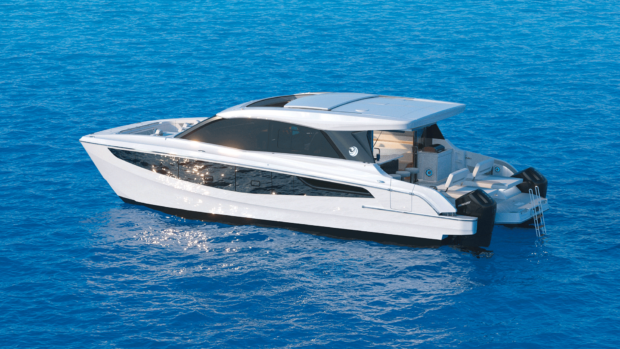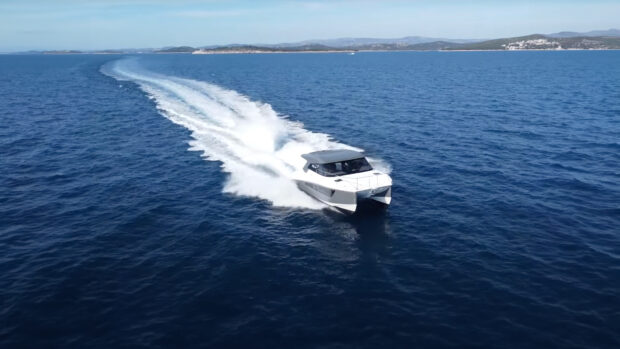Barcelona organisation want to clear up confusion
A Spanish leisure boat authority have issued advice about the controversial matriculation tax in Spain.
Thousands of British boaters with craft in Spain have been alarmed by stories of boats being impounded over non-payment of the tax.
There has been confusion over who the tax applies to – particularly whether the authorities are imposing it on boats which are moored in Spain for longer than six months.
Traditionally it would apply to not boats but people who remain in Spain for longer than six months, and therefore become eligible for local taxes.
The FEAPDT Federación Española de Asocaciones de Puertos Deportivos y Turísticos (Spanish Federation of Touristic and Pleasure Harbour Associations) say: “The Spanish Tax Authority’s activities in recent months have created alarm among foreign flag-bearing vessels moored in ports up and down the Spanish shoreline.
“These activities have been directed, depending on each case, at boat owners or users who must pay the Special Tax on Certain Means of Transport and/or VAT.
“We believe that such alarm is completely unfounded since, as Spain is governed by the rule of law, any Tax Authority actions must fall within the bounds of a corresponding Act of law.
“There is no room for arbitrary activities, only the pursuit by legal means of fiscal irregularities that people must know about.
“It is clear that those bearing the brunt of the aforementioned activities are foreigners who do not know the language or Spanish law on this matter, thus giving rise to confusion.”
The association’s report attempts to clear up some of the confusion.
This starts out by stating the basics, namely that the Special Tax on Certain Means of Transport, known as the Registration Tax, amounts to 12% of the price or value of a vessel.
All vessels measuring more than 8 metres that are registered in Spain are subject to the tax, and they must be registered in order to be used in Spanish territorial waters by private residents and other established entities.
The report says the condition for which there is an obligation to register in Spain, and pay the Special Tax, is when the owner or user is a private individual and is a resident – when they lived there for more than 183 days in a year or when they have their main business interest in Spain.
When a vessel belongs to a company, there is an obligation to register it in Spain when the company has operating premises there.
If a vessel is located permanently in Spain or for more than 183 days a year, the report states, this fact alone does not determine an obligation to register it in Spain.
So crucially a vessel, whose owner is not a resident and does not have business premises in Spain, can remain in Spanish waters without the need to pay the Special Tax.
The owner can be required by the Spanish Tax Authorities to demonstrate they do not reside in Spain by providing a residence certificate of their home country, or in the case of companies, any means of proof of business location accepted in law.
On the other hand, in the event that an owner changes their residency from abroad to Spain, there will be no obligation to pay the Special Tax if the vessel was acquired under normal fiscal conditions in the country of origin and there is a request made to register the vessel less than 30 days from when the person acquired the status of resident.
So, summarising:
1) The ownership of or navigation in Spanish waters of a leisure boat by non-residents does not generate the obligation to pay the Special Tax.
2) The application of the Special Tax does not depend on the period of time that vessels are in Spanish waters; it does depend on the owner or user.
3) Residents in Spain are people who live more than 183 days a year on Spanish territory or have their main centre of business interest in Spain.
4) Proof of non-residency in Spain can be required, and can be demonstrated by presenting a residency certificate from another country.
5) If vessel owners change their residency to Spain, they can avoid paying the registration tax by fulfilling a series of requirements.
6) If a company is a vessel owner, it must pay the Special Tax when it becomes established in Spain or is used by a private resident or established company.
The association “strongly advise anyone who may be affected by these points to contact a specialist tax adviser”.
More on this in MBY August issue, published 2 July.









